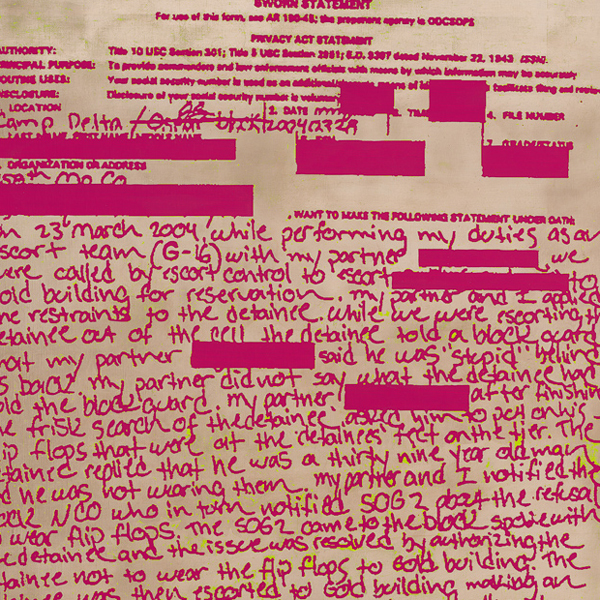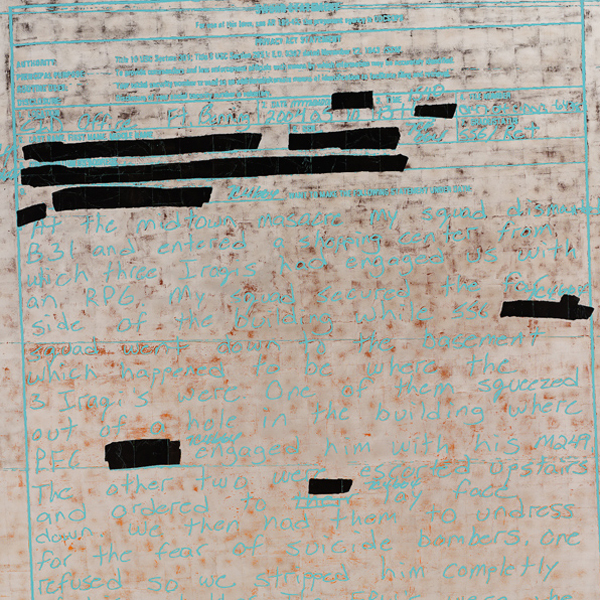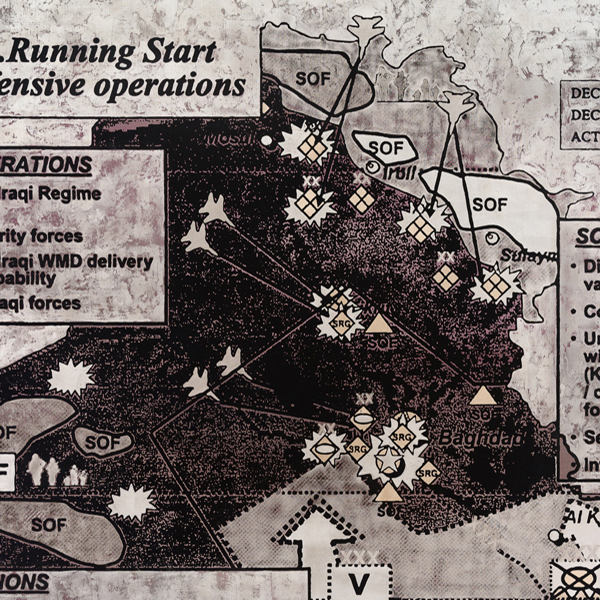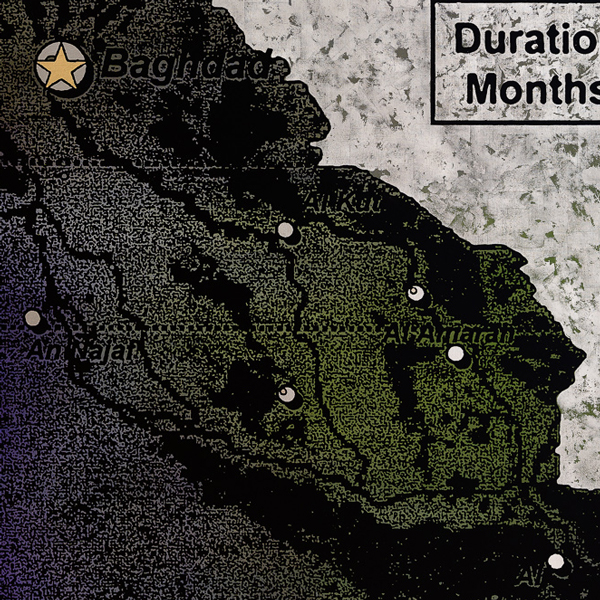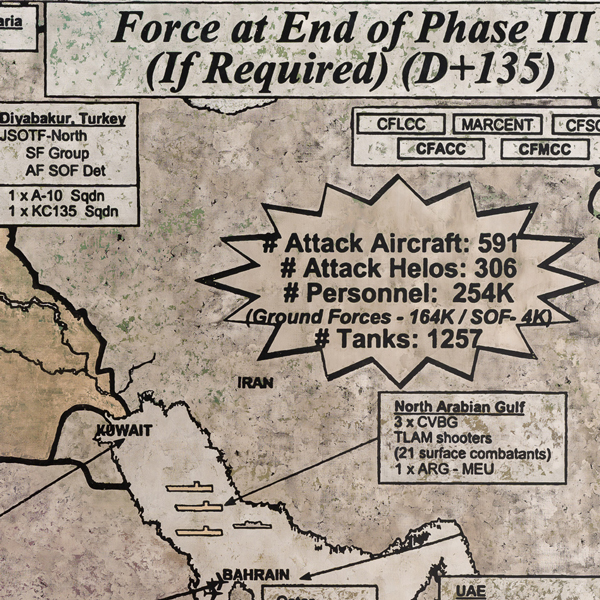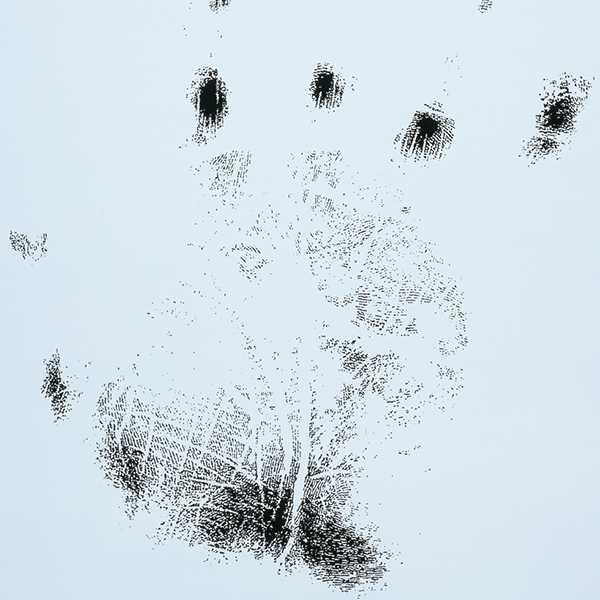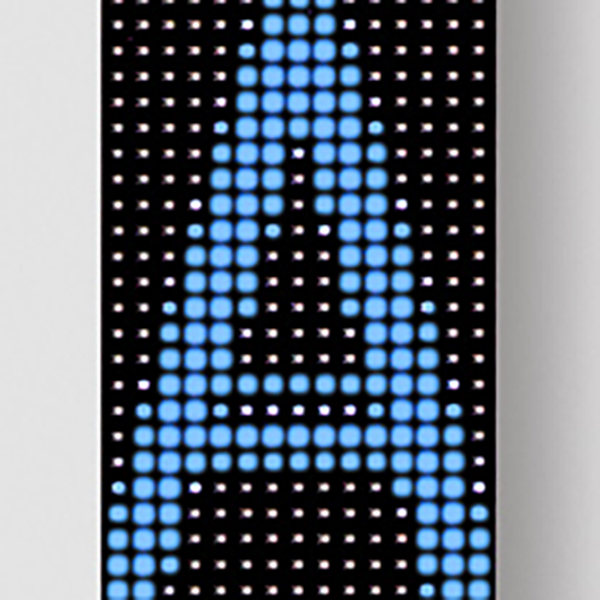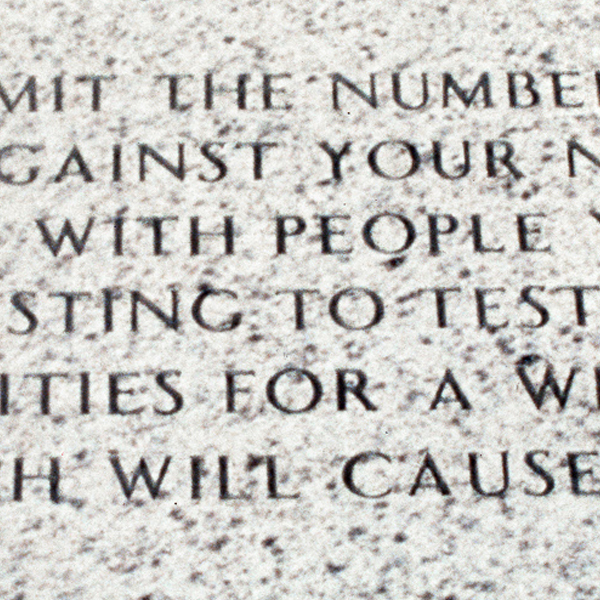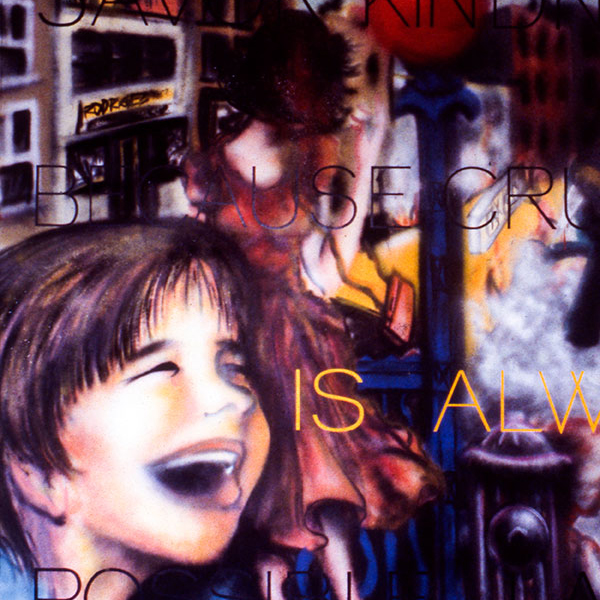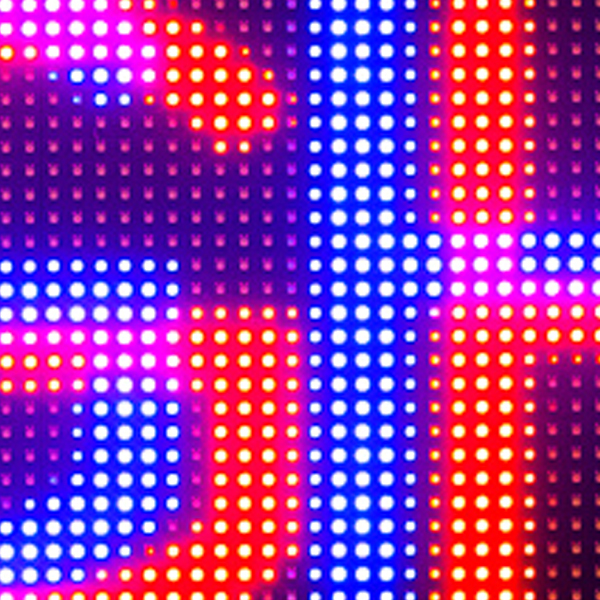


For Bilbao, 2019
About Jenny Holzer
Jenny Holzer (born in 1950 in Gallipolis, Ohio) prompts the viewers of her works to engage with contrary perspectives and social structures. Employing a wide range of media and constantly reinventing her approach, she lends visual form to the texts and ideas on which her works are based. Since the 1970s, these works have appeared on city streets, in everyday life, and in the museum.
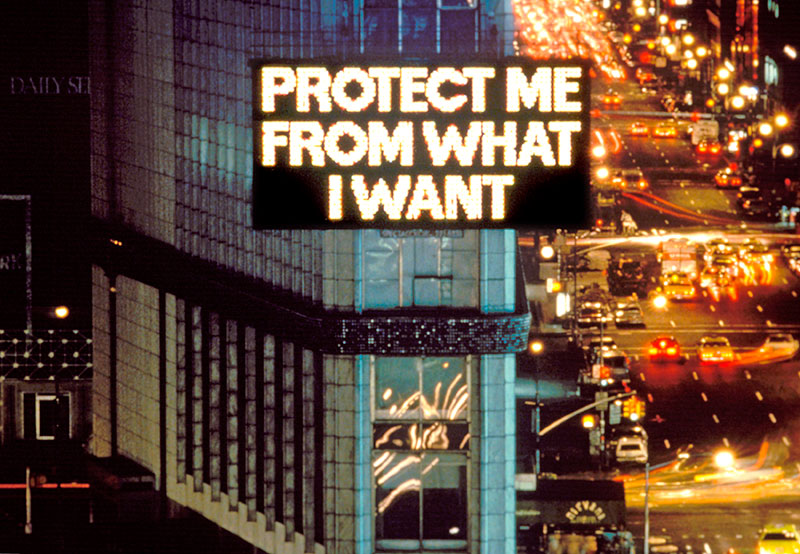
from Survival (1983–85), 1985
In 1977, Holzer launched her text series Truisms in New York City by printing succinct, seemingly self-evident sentences in black letters on white paper. Shown as anonymous street posters, they could be viewed as validation or as a challenge to rethink rote expressions.
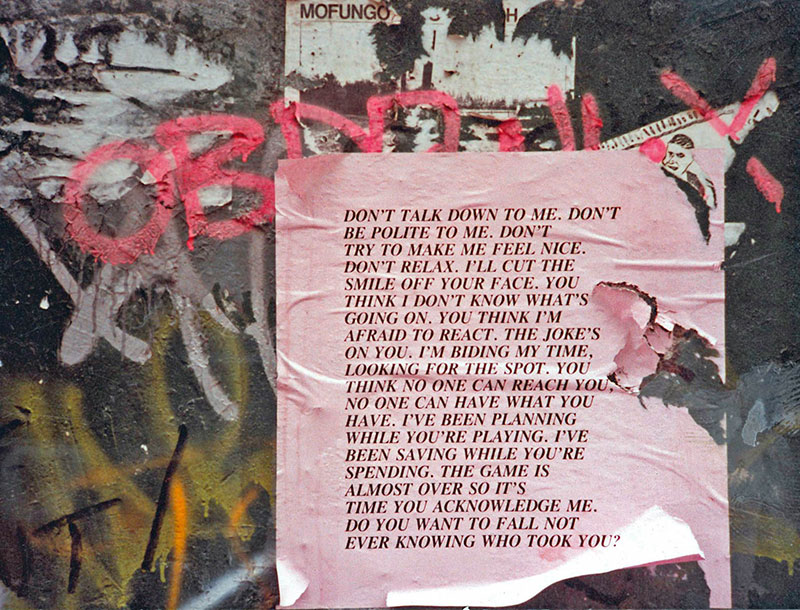
from Inflammatory Essays, (1979–82), 1983
Over the years, Holzer developed longer text series such as Inflammatory Essays, a set of one-hundred-word statements based on political and other manifestos. Published as a book in 1979 and often printed on brightly colored paper, the texts provoke reflection on idealism, consumption, activism, gender relations, and abuse of power.
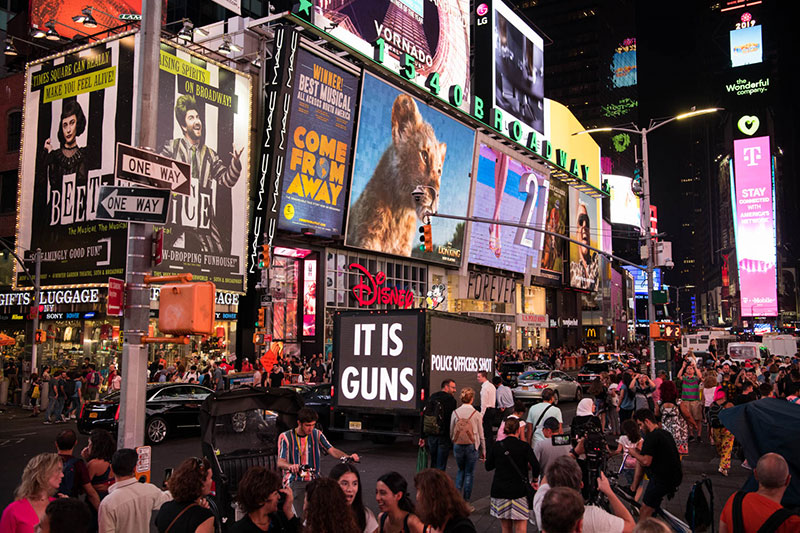
It Is Guns, 2019
Since then, Holzer has presented her own and other people’s texts in a variety of media, including T-shirts, caps, condom wrappers, rubber stamps, posters, LED tickers, light projections, benches, social-media posts, billboards, and trucks driving through cities. During the exhibition, Holzer’s text-based animations can be seen on advertising and information signs throughout Düsseldorf.
from Survival, (1983–85), 2023
Holzer’s LED works draw on the conventions of news media and advertising in public spaces, exploring themes such as war, violence, and tenderness. One of the LED pieces in this show features newly collected texts from the war in Ukraine.
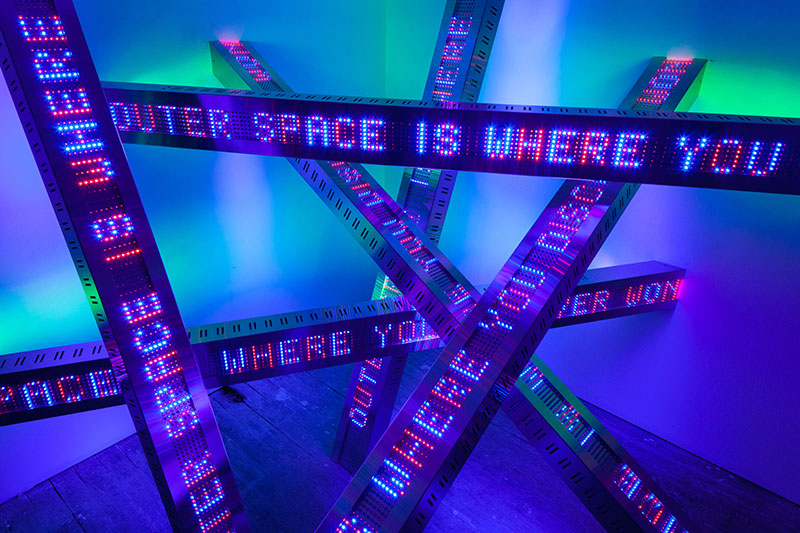
Heap, 2012
Since 1986 Holzer has produced stone benches with carved inscriptions, echoing traditions of marble sculpture and functional furniture. The stoneworks in this exhibition feature her own texts and fragments from poetry on war.

Truisms: A relaxed man…, 1987
The brutality of war, including sexual violence, is the subject of Holzer’s text series Lustmord (1993–95). Created during the Yugoslav Wars of the 1990s, the texts describe rape from the perspectives of the perpetrator, the victim, and an observer. At K21, excerpts from Lustmord are engraved on silver bands wrapped around human bones.
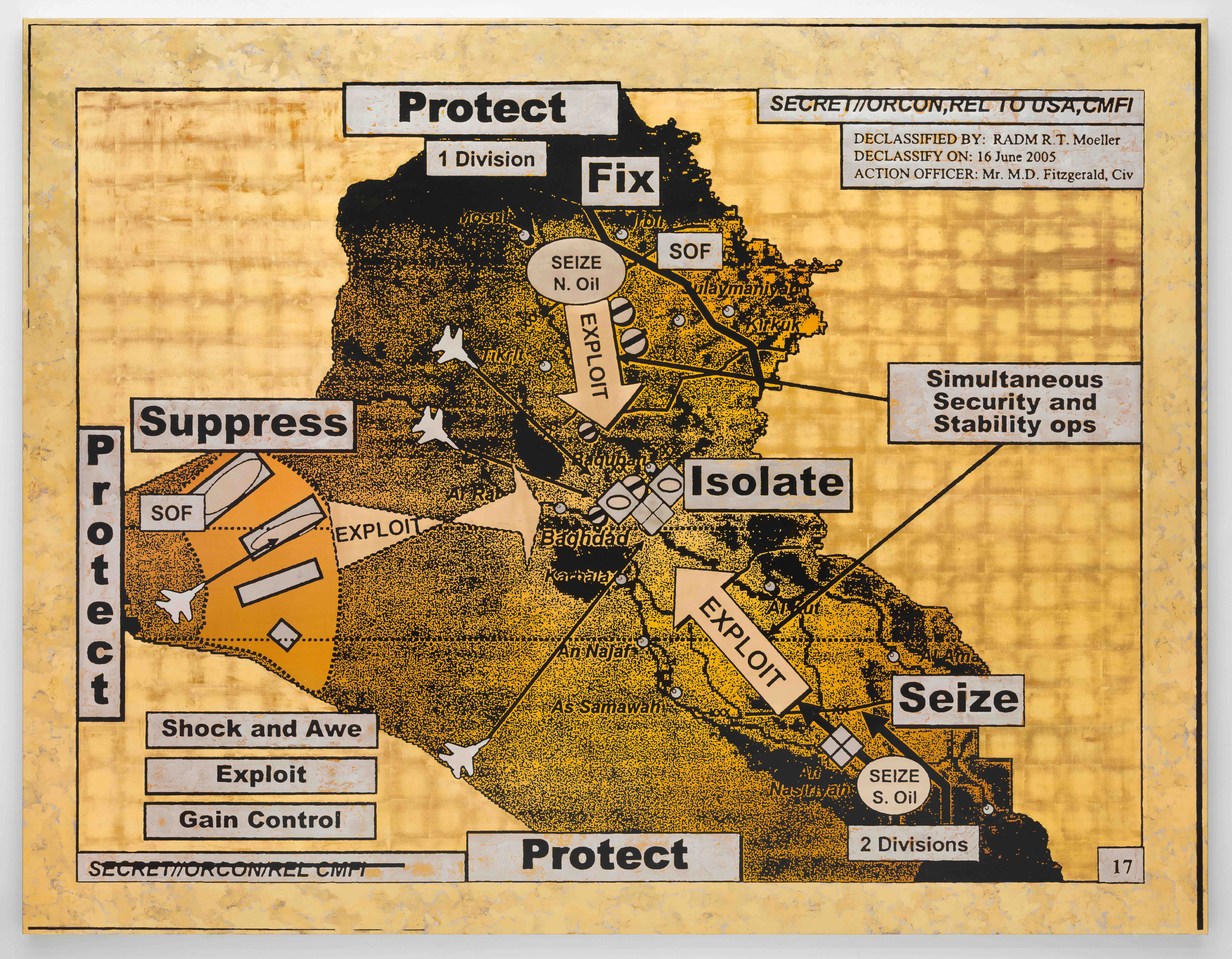
Protect Protect metal, 2023
Since 2005, Holzer has worked on oil paintings that present declassified documents from US government agencies. The documents—which concern military operations in Afghanistan and Iraq, the use of torture in prison camps, and sensitive meetings—include memos, maps, interrogation transcripts, autopsy reports, and notes from and about detainees. Such documents have been made available through Freedom of Information Act requests by organizations such as the National Security Archive and the American Civil Liberties Union, but are often heavily redacted by the US government before release.
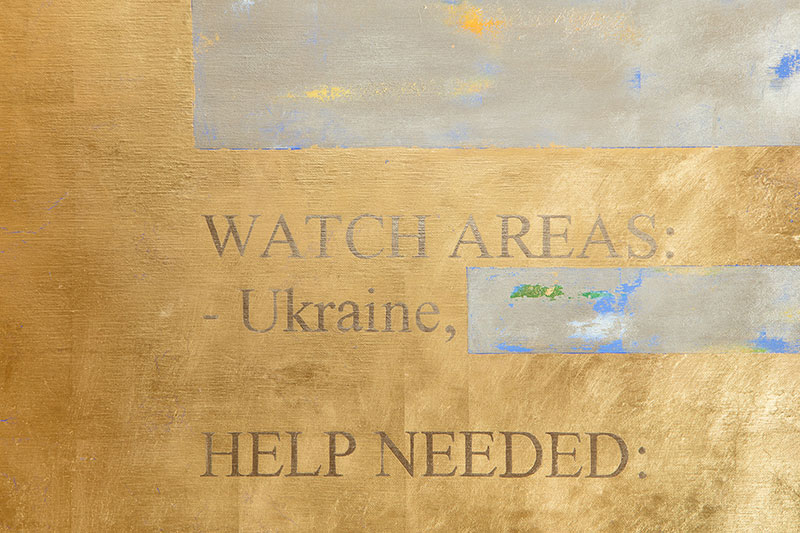
HELP NEEDED:, 2020 (detail)
The artist has translated these documents into paintings layered in oil and metal leaf. Her approach rides the line between documentation and subjective artistic expression, drawing from the rich visual possibilities of abstract expressionism and color field painting.
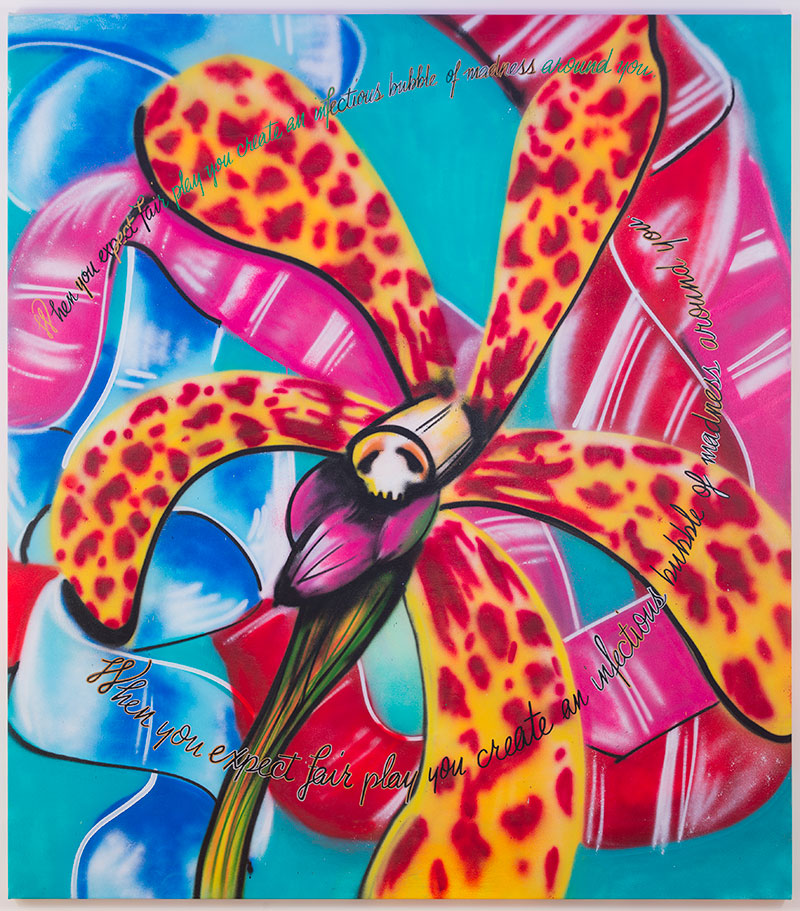
When you expect fair play…, with Lady Pink, ca. 1983 – 84
Holzer’s installation at K21 also incorporates some of her work with graffiti artist Lady Pink, giving parts of the museum the look of a street scene. The two artists have collaborated since the early 1980s. On view here are vintage spray paintings and a new mural created specifically for K21.
BIRTHDAY, 2022

